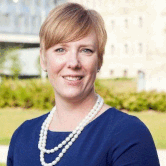Podcast: Play in new window | Download (Duration: 18:48 — 17.2MB) | Embed
Subscribe: iHeartRadio | Email | RSS | More
Upon publishing “Healthy research ecosystem  – healthy researchers? The researcher as an organism of focus within a ‘research ecosystem’ in Academic Matters in mid-March 2019, Ross Upshur and Michelle Nelson, convened to critique themes from their paper and discuss a number of other academic matters not originally mentioned in the paper but have boggled the minds of many academics far and wide for a long time.
– healthy researchers? The researcher as an organism of focus within a ‘research ecosystem’ in Academic Matters in mid-March 2019, Ross Upshur and Michelle Nelson, convened to critique themes from their paper and discuss a number of other academic matters not originally mentioned in the paper but have boggled the minds of many academics far and wide for a long time.
In mid-March 2019, Ross Upshur and Michelle Nelson published “Healthy research ecosystem – healthy researchers? The researcher as an organism of focus within a ‘research ecosystem’” in Academic Matters. The paper, as themselves put it “explores issues of relevance to higher education and is a forum for thoughtful and thought-provoking” discussions and consideration of academia’s future direction. The paper is a response to the ever-changing research environment that researchers find rather difficult to adapt in order to thrive and maintain a solid research. In the podcast, the duo try to discuss some of the subjects mentioned in the report by David Naylor titled: Investing in Canada’s Future: Strengthening the Foundations of Canadian Research such as “research ecosystem”, “life-cycle approach” and also elaborate on other relevant subjects that matter most to the academia and researchers alike.
In part one of the podcast, subjects such as committee and panel memberships, reviewing manuscripts and grants, research funding, research as a carrier, training PhD students, self-interest vs. community interest in research, paper citations, academic citizenship, research ecosystem management, ways to retire from clinical practice and research, research culture, and more are all discussed modestly.
Link to “What it Means to be a Good Academic Citizen – Part 2”